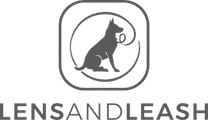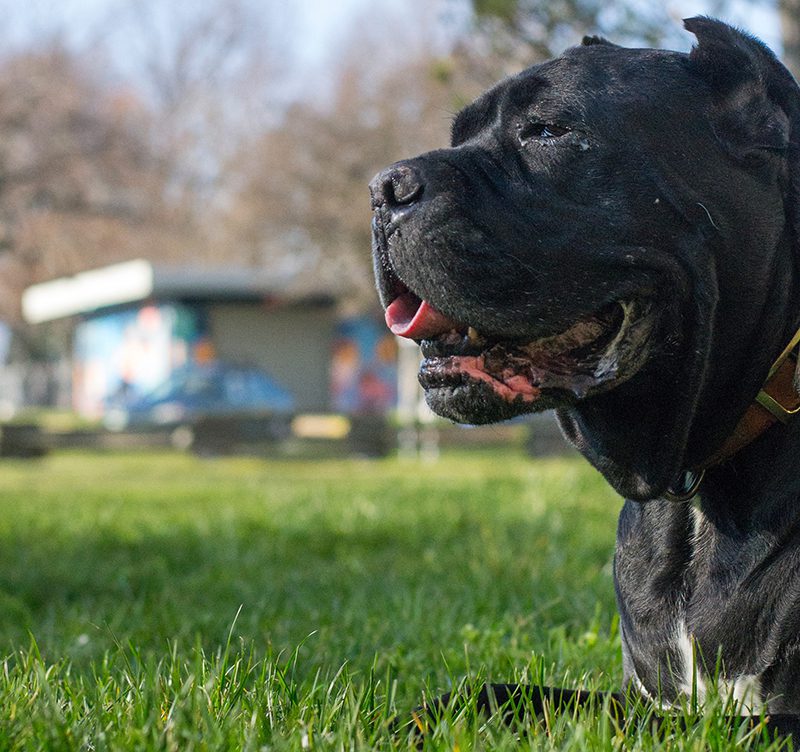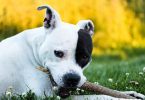Cane Corso: Dog Breed Characteristics & Info
If you are looking for a large, imposing dog that is both loyal and protective, the Cane Corso may be the breed for you. This ancient breed has been used for centuries as guard dogs and Roman war dogs, and it still retains many of its natural instincts today. In this guide, we will discuss everything you need to know about the Cane Corso dog breed, including history, temperament, health concerns, and more!
The History of the Cane Corso Breed
The Cane Corso has a long history as an Italian guard dog in the Italian Countryside and Southern Italy. The breed is descended from the Molossus, which was a large Mastiff-type dog that existed in ancient Greece and the Roman Empire. These dogs were used by soldiers to fight against enemies during wartime, and they also helped herd livestock on farms when they weren’t being used as guardians. The breed was eventually brought to Italy, where it was used by the Italian nobility to protect their estates and families.
The Cane Corso remained a rare breed until the 1990s, when it began to gain in popularity both in Europe and North America. Today, the Cane Corso is one of the most popular Mastiff-type breeds in the world.
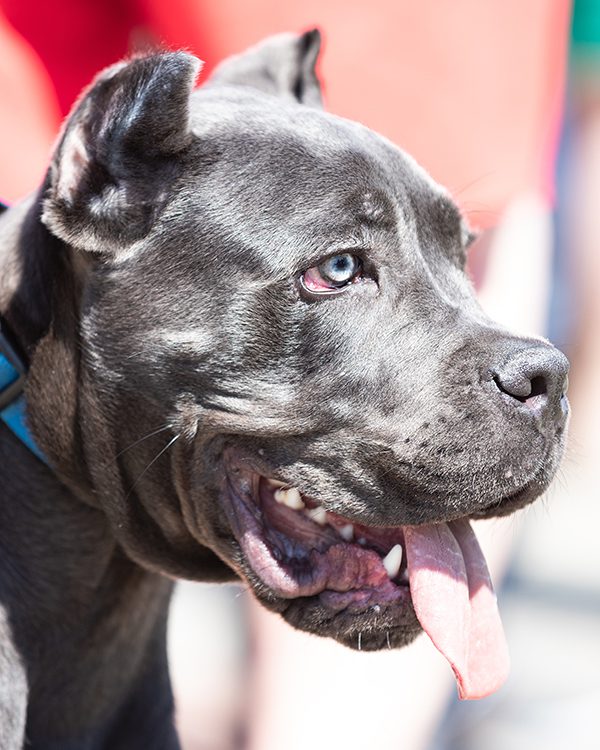
Cane Corso Temperament & Personality
The Cane Corso is a large, muscular dog that is known for its protective instincts and loyal temperament. These dogs are typically very friendly with their families but can be wary of strangers. They make excellent guard dogs and will bark or even attack if they feel their family is in danger.
The Cane Corso is also known for its intelligence and obedience. These dogs are easy to train and will learn quickly what is expected of them. They are ideal candidates for agility or obedience competitions, as they love to please their owners.
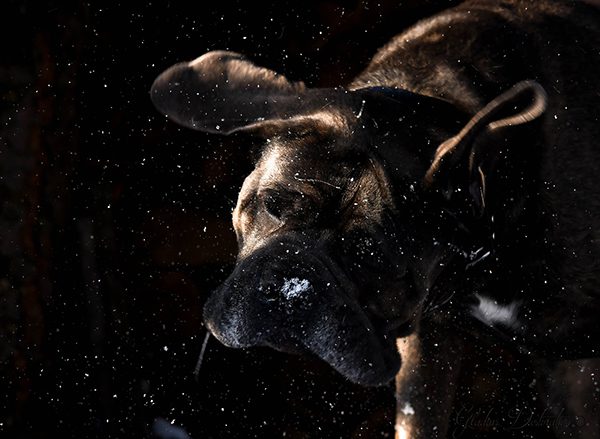
Health Concerns With Cane Corso Dogs
The Cane Corso is a healthy breed, but there are some health concerns that you should be aware of. Some common health problems include hip dysplasia, elbow dysplasia, and bloat. It is important to have your dog screened for these conditions by a veterinarian at least once a year.
In addition, the Cane Corso may suffer from skin problems such as allergies and rashes. This can be a result of poor diet or poor grooming habits on the part of the owner.
The Cane Corso is also prone to eye problems like cataracts, cherry eye, and glaucoma. These conditions can lead to blindness if left untreated.
Overall, the Cane Corso is a healthy breed with few major health concerns. However, it is important to be aware of these conditions and have your dog screened by a veterinarian on a regular basis.
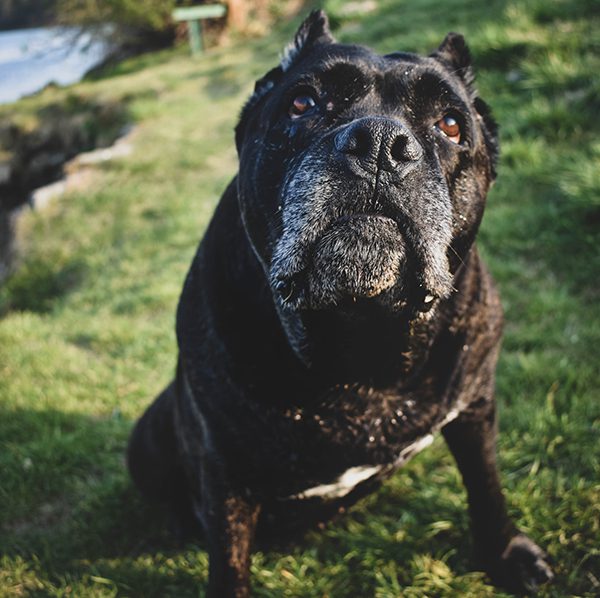
Basic Cane Corso Grooming
As a large dog with short hair, the Cane Corso dog is fairly easy to maintain. These dogs shed moderate amounts throughout the year and are not recommended for people who suffer from allergies. It is important that you brush your Cane Corso’s coat on a regular basis to help prevent matting of the fur.
The Cane Corso’s nails should be trimmed on a monthly basis, and its ears should be cleaned regularly to prevent infection. You should also give your dog a bath every few months, using a mild shampoo designed for dogs.
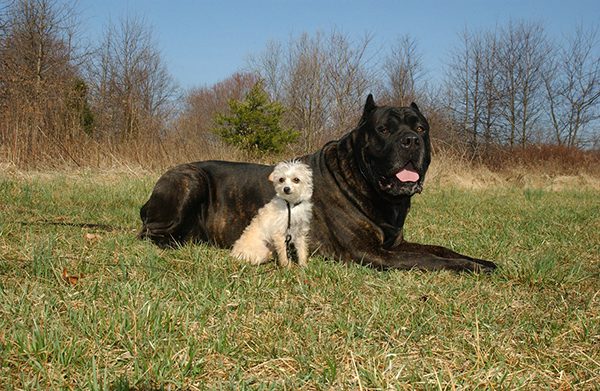
Adopting a Cane Corso Rescue or Shelter Dog
If you are interested in adopting a Cane Corso, there are many rescues and shelters that specialize in this breed. The American Kennel Club has an online database of rescue groups all over the country, as well as information about upcoming events where you can meet potential dogs for adoption.
Many large cities also have their own Cane Corso rescue groups, which can be found through local veterinarians or kennels. These organizations often hold fundraisers and events in order to raise money for their cause, so check your local papers for more information.
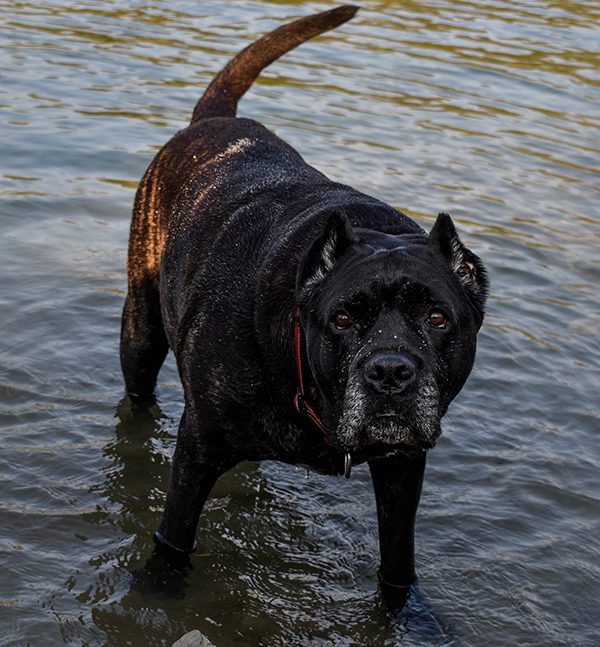
Dog Training For The Cane Corso Breed
The Cane Corso is a very intelligent breed and is easy to train. These dogs are eager to please their owners and will learn quickly what is expected of them.
Basic obedience commands such as sit, stay, come, and down should be taught early on in the dog’s life. You can also begin training your Cane Corso to fetch or retrieve at this time.
The Cane Corso dog is also a very active breed, so you should provide plenty of opportunities for your dog to exercise. These dogs love to run and play, and they need at least an hour of activity every day. You can take them on a brisk walk or run around the neighborhood as they can easily walk or run at least a mile, or you can play fetch in the backyard. Swimming is another great way for your dog to expend some energy and have fun at the same time!
The Cane Corso is a large breed of dog, so it’s important that you keep an eye on them when they are around small children or other pets. These dogs may accidentally knock over children or step on them, so it’s best to supervise playtime closely.
Socialization is also an important part of training for this breed. You should begin socializing your Cane Corso as soon as you bring it home from the breeder or shelter by introducing it to new people and animals gradually.
It is also important to teach your Cane Corso not to jump up on people or other animals, as this can lead to accidents and injuries. You should begin obedience training at a young age in order for your dog to learn proper manners.
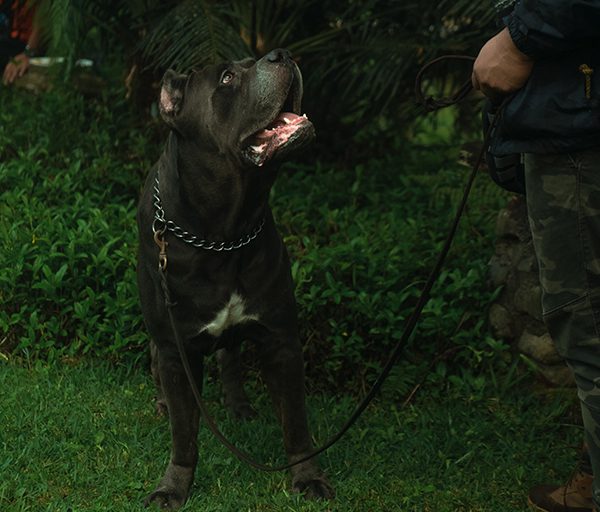
Diet And Nutrition For Cane Corsos
The Cane Corso is a breed that requires a lot of protein in its diet. You should feed your dog high-quality kibble or canned food that is designed for large breeds. In addition, you can give your dog raw meat or eggs as a supplement.
Your Cane Corso should also have access to fresh water at all times. Make sure to change the water bowl daily and clean it regularly to prevent bacteria from growing.
If you are not sure what type of food is best for your dog, consult with your veterinarian for advice. He or she will be able to recommend a diet that is suited specifically for the Cane Corso’s individual needs.
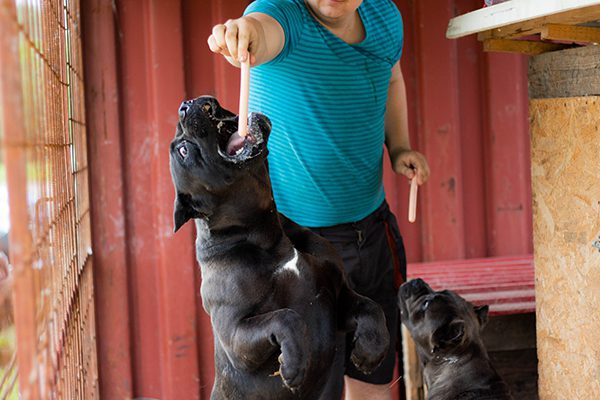
Cane Corso Puppy Vs. Adult Cane Corso
Cane Corso Puppies are a lot of work, but are also a lot of fun. Cane Corso puppies are full of energy and love to play, so you will need to provide them with plenty of exercise.
In addition, you will need to house train your puppy and socialize him or her with other people and animals. Puppies need to be taught not to jump up on people, bite or chew on furniture and other objects.
These dogs are large in size even when they are just puppies, so you should always supervise them around small children. You will also want to make sure your puppy is safe from any dangerous situations that could occur if he or she escapes from the house.
Once Cane Corsi are adults, they are much more mellow and relaxed and can even become a couch potato. They still require plenty of exercise, but do not need to be as closely supervised as puppies. Adult Cane Corsos can also handle living in an apartment or small home without too many problems.
If you are thinking about getting a Cane Corso puppy, make sure you are prepared to put in a lot of time and effort into training and caring for it. These dogs can be very destructive if they are bored or not given enough attention, so make sure you have the time to dedicate to your new pet before bringing one home!
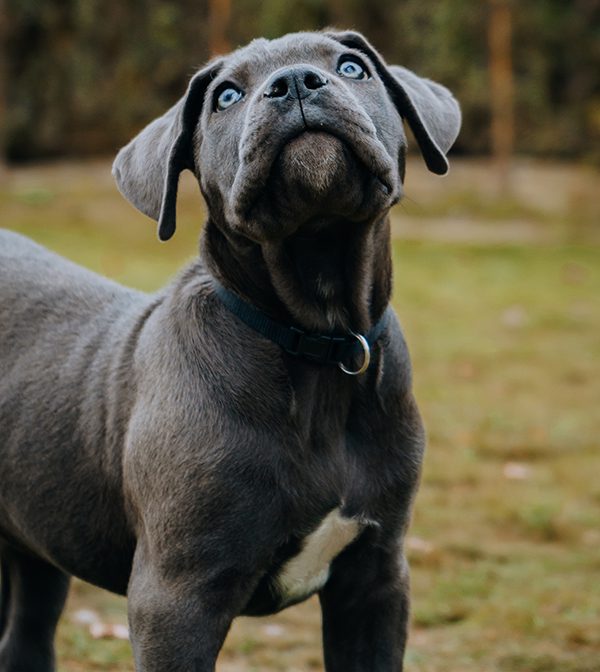
Cane Corsos Life Span
The average lifespan of a Cane Corso is between eight and twelve years. However, some dogs have been known to live as long as sixteen years or more.
As with any breed of dog, it is important to provide your Cane Corso with proper nutrition, exercise, and veterinary care in order to ensure its health and extend its life.
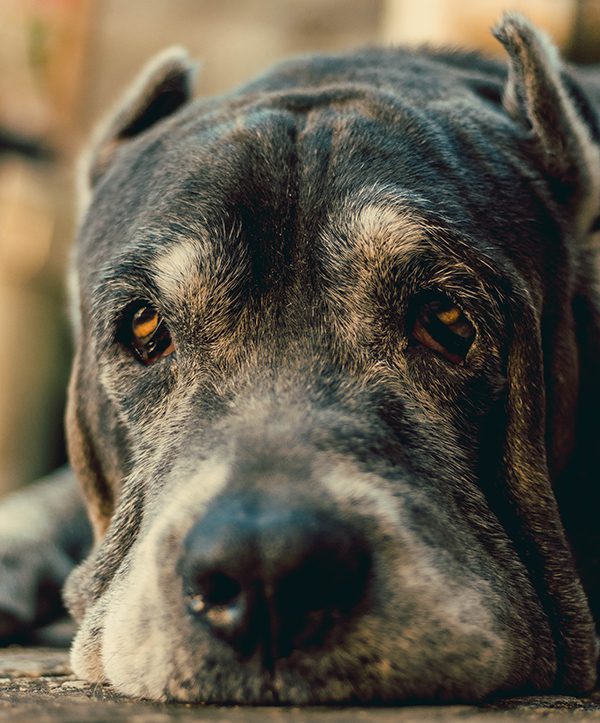
Frequently Asked Questions
Is There An Association Or National Breed Club?
Yes. There are many associations that specialize in this breed of dog, such as the National Cane Corso Association (NCCA) and The Continental Kennel Club (CKC). These groups provide information about breeding standards, training tips, and other resources for owners of these dogs.
How Can I Find Other Can Corso Owners?
There are many ways to find other Cane Corso owners. The easiest way is to use Lens And Leash! You can also contact your local veterinarian or breeder for information about groups in your area.
Are Cane Corsos Good For First Time Dog Owners?
No. Cane Corsos are not recommended for first time dog owners. These dogs require a lot of exercise and training, and can be quite destructive if they are not given enough attention. They are best suited for experienced dog owners who have the time to devote to caring for them properly.
Can Cane Corsos Hunt Big Game Or Be Used For Hunting Wild Boar?
No. Cane Corsos are not bred for hunting and should not be used for this purpose. These dogs were originally bred as guard dogs and are not suited for chasing down prey in the wild.
Is An Adult Cane Corso Considered A Working Dog?
Yes. An adult Cane Corso is considered a working dog because it was originally bred for guarding and hunting purposes. These dogs are not suited for doing manual labor, but they can be trained to perform simple tasks such as retrieving items or opening doors with their mouths.
I Want To Adopt A Cane Corso Puppy. Where Can I Do That?
Many animal shelters and rescue organizations are home to Cane Corso puppies. You can contact your local shelter or search the internet for a list of rescues that may have puppies available for adoption. Puppies from breeders can also be expensive, so adopting one from a shelter is often cheaper and just as rewarding.
Can A Cane Corso Interact Well With Other Dogs, Including Small Dogs And Other Pets?
Yes. Cane Corsos can get along well with other dogs and most pets if they are properly trained and socialized from an early age. These dogs tend to be very friendly towards their owners, but may be wary of strangers at first until they become familiar with them. It is important to introduce your dog to new people in a positive way so that it will not become aggressive or timid around them.
Does The Cane Corso Have Any Health Issues Or Genetic Health Problems?
Yes. The Cane Corso is known to have a number of health issues, including hip dysplasia, epilepsy, and heart problems. Many of these conditions can be hereditary, so it is important to talk to your veterinarian about any health concerns you have before adopting or purchasing a Cane Corso puppy.
Are Cane Corso Considered Friendly Dogs?
Yes. Cane Corsos are considered to be friendly dogs that make good family pets. They are typically loyal and protective of their owners, but can also be playful and affectionate.
Do Cane Corso Require Physical Stimulation & Mental Stimulation?
Yes. Cane Corsos need a lot of physical and mental stimulation to stay healthy and happy. These dogs were bred for guarding, so they have a high prey drive that needs to be satisfied with exercise or other forms of activity such as running around in an enclosed yard or playing fetch with their owners. They also require regular mental stimulation by learning new tricks or commands and playing mind games such as hide-and-seek with their owners.
Do Cane Corso Need A Lot Of Grooming?
No. Cane Corsos have low maintenance when it comes to grooming, but they do shed a lot of dog hair. It is important to brush your dog’s coat on a daily basis as they have a semi stiff coat to prevent matting and tangles from occurring.
Conclusion
The Cane Corso is a powerful dog with an intimidating appearance, but they make great family pets if trained properly! With proper training and early socialization, these dogs can be very loving towards their owners while also being protective of them against intruders or other threats.
